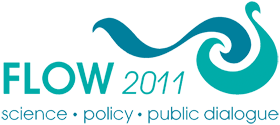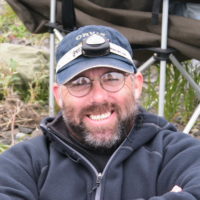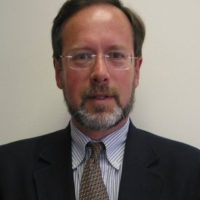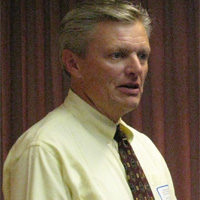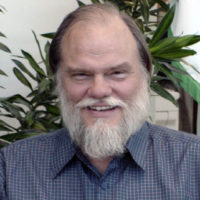Four half-day workshops were held May 2, 2011, prior to the plenary portion of the conference. Each workshop was repeated, allowing participants to attend one in the morning and a different one in the afternoon. We encouraged participants to use these workshops to extend, and expand beyond, their typical subject area – i.e., encouraged scientists to try the social marketing workshop, attorneys to try the science workshop, etc.
Workshop #1
Science – Linking Hydrology and Biology – Where We Are and a Roadmap to the Future
This facilitated workshop focused on identifying the best science available to address what many consider the weakest yet most difficult link in instream flow science – the relationships between biology and hydrology. Numerous initiatives compiled from recent research agendas, case studies, and science based frameworks were explored by a panel of experts and workshop attendees to identify the current state-of-the-art, critical challenges to strengthen the linkages between biology and hydrology, and identification of strategic research needs in terms of development, calibration, and validation of science based approaches.
See agenda and read more about this workshop.
Facilitator: Thomas Hardy – River Systems Institute, Texas State UniversityInstructors: Mary Freeman – US Geological Survey; Paul Leonard – Cardno ENTRIX; Steve Railsback – Lang, Railsback & Associates
Workshop #2
Policy – Flow Protection through Federal Water Quality Law and Regulation
The intent of the US Clean Water Act is to restore and maintain the chemical, physical, and biological integrity of the Nation’s waters. Water quality components of the Act are aimed at protecting the full scope of benefits that clean and abundant water provide to society at large. Instream flows are fundamental to achieving these goals. This workshop focused on how the Act can be used to protect instream flows and strategies to better assure flow protection through narrative and numeric water quality standards. Also covered was comparison of US law and regulation to those of Canada and Mexico that may be used for flow protection.
See agenda and read more about this workshop.
Opening Speaker: Richard Roos-Collins – Water and Power Law Group
Additional Instructors: Ralph Abele – USEPA, Region 1; Paul Davis – Tennessee Department of Environment & Conservation; Lisa Perras Gordon and Susan Hansen– USEPA, Region 4; Gerrit Jöbsis – American Rivers
Workshop #3
Public Dialogue – Fostering Public Action – What is Social Marketing and How Can it Help?
This workshop taught the basic concepts and tools of social marketing and will help participants understand how to apply them. Social marketing is a powerful approach to addressing a wide range of today’s social problems. Its goal: to bring about voluntary behavior change in the lives of individuals that can have meaningful benefits, both for those individuals and for society as a whole. Social marketing uses many of the successful techniques of commercial marketing. However, rather than being product oriented, social marketing is people oriented. Put simply, social marketers sell positive behaviors
See agenda and read more about this workshop.
Lead Instructor: Jack Wilbur, Social Marketing Consultants
Workshop #4
Valuation in Depth – What is a River Worth?
The Value Systems of Humanity and Nature Applied to Rivers and Streams
In this workshop we explored the way that we value rivers and streams and compared it to Nature’s value system. Energy Systems Theory provided a perspective on what nature values. Emergy and transformity were explained and applied to help us understand the way that Nature values all things. The economic or human perspective on value was also discussed and the new concept of ecosystem services applied to rivers and streams. Finally, we explored environmental accounting using emergy as a method for ensuring that all human enterprises are operating in a sustainable manner.
See agenda and read more about this workshop.
Instructor: Dan Campbell, US Environmental Protection Agency
Last Updated May 6, 2019

